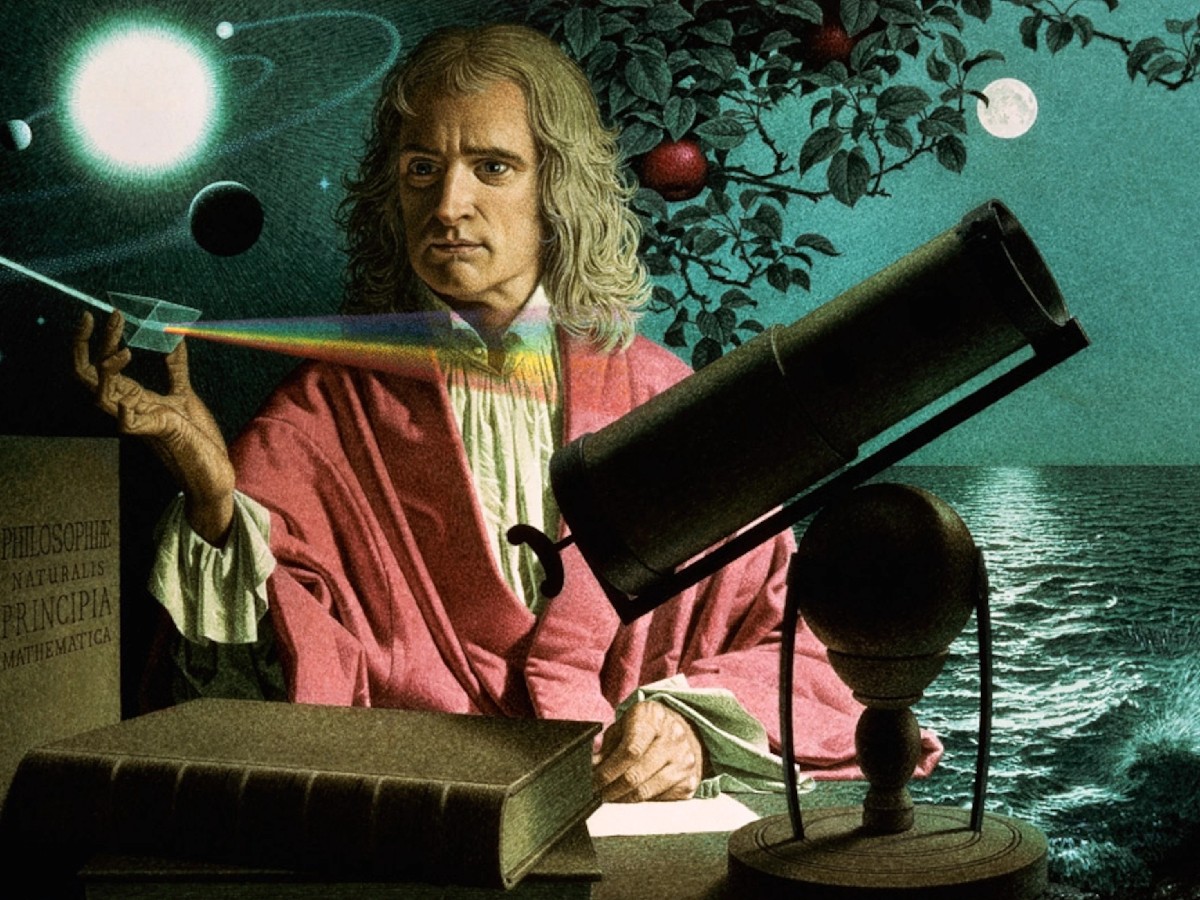This Day, That Year – December 25
Sun 25 Dec 2022
This day in history we feature Isaac Newton. A genius with dark secrets Sir Isaac Newton, who changed the way we understand the Universe was born on this day in 1642.
Trivia – Isaac Newton
Sir Isaac Newton was an English mathematician, physicist, astronomer, alchemist, theologian, and author (described in his time as a “natural philosopher”), widely recognised as one of the greatest mathematicians and physicists and among the most influential scientists of all time. He was a key figure in the philosophical revolution known as the Enlightenment. His book Philosophiæ Naturalis Principia Mathematica (Mathematical Principles of Natural Philosophy), first published in 1687, established classical mechanics. Revered in his own lifetime, he discovered the laws of gravity and motion and invented calculus. He helped to shape our rational world view.
Related read – Telescope captures remains of a massive dead star
Newton built the first practical reflecting telescope and developed a sophisticated theory of colour based on the observation that a prism separates white light into the colours of the visible spectrum. His work on light was collected in his highly influential book Opticks, published in 1704. He also formulated an empirical law of cooling, made the first theoretical calculation of the speed of sound, and introduced the notion of a Newtonian fluid. In addition to his work on calculus, as a mathematician Newton contributed to the study of power series, generalised the binomial theorem to non-integer exponents, developed a method for approximating the roots of a function, and classified most of the cubic plane curves. Newton was a fellow of Trinity College and the second Lucasian Professor of Mathematics at the University of Cambridge. Newton was a devout but unorthodox Christian who privately rejected the doctrine of the Trinity. He refused to take holy orders in the Church of England, unlike most members of the Cambridge faculty of the day. Beyond his work on the mathematical sciences, Newton dedicated much of his time to the study of alchemy and biblical chronology, but most of his work in those areas remained unpublished until long after his death. Politically and personally tied to the Whig party, Newton served two brief terms as Member of Parliament for the University of Cambridge, in 1689–1690 and 1701–1702. He was knighted by Queen Anne in 1705 and spent the last three decades of his life in London, serving as Warden and Master of the Royal Mint, as well as president of the Royal Society.
Source – Wikipedia
This day in history Blackpool Tramway

 Apr 28 2024
Apr 28 2024













